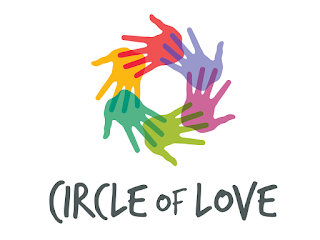I have no idea how I wound up here. Over 7 years into this almost ludicrous adventure it still baffles my mind and teases my soul. A constantly schooled, city-bound, office shaped guy living on a farmstead, raising vegetables and chickens…and smiling in the company of an indulgently loving and endlessly curious wife, observed by amazed and amused kids who still wonder what happened to their Dad. It is not what I prepared for. It is not the brass ring toward which I had reached. It is…fascinatingly…gloriously…laughably…different. How did this happen?
Some have speculated a lost mind. Some have guessed “mid-life crisis.” Some have indulged my enigmatic, inexplicable sense that this was where I was being called to be.
Who can say? It still takes my breath away.
Years ago, Garth Brooks famously gave thanks for unanswered prayer — that divine dispensation of grace that saved him from the myriad consequences of the stupid, or even well-meaning but misguided, things for which he had earnestly asked. I always loved that song, even though I had no real clarity about the hypothetical eventualities from which I’d been spared. Regardless, perhaps that accounts for some part of an explanation.
Years later, my brother introduced me to a song by Walt Wilkins with a similar but differently turned sentiment:
Here's to the trains I missed, the loves I lost
Here's to the call I didn't hear, the signs I didn't heed
The roads I couldn't take the map that I just wouldn't read
CHORUS
It's a big ole world but I found my way
From the hell and the hurt that led me straight to this
Here's to the trains I missed
Lunacy. Unanswered prayers. Missed trains that led me straight to this. Perhaps. All I know is that this is where I am, and this is what I am doing, in partnership with a beloved whose very presence in my life amazes and blesses me and constantly surprises me -- all despite everything that I had intended, prepared for, dreamed of and practiced. I know all that, and that I am grateful. Unspeakably grateful. And happy.
Standing here in the waning candlelight of an old year ending, approaching the threshold of a New Year still gelatinous and unformed, I wonder what insight my past has to pass along to my future. At the very least it suggests that I am not as bright as I like to think I am, and certainly not as prescient. My bigotries and preconceived ideas lead me to think I know what’s best — for myself and quite possibly others. My experience, however, suggests an humbler reality. As often as not, I don’t. I hope and pray I can take that to heart.
In this New Year erupting I have no idea what’s ahead, nor which trains I should catch — or miss. I will do my best to pay attention and discern; I will run down the tracks in pursuit of those engines that seem promising and prudent. But I pray for the circumspection to anticipate that, as often as not, I’ll be wrong.
And to be relieved and thrilled by what that mistake and missed opportunity occasions in its place; that I had no way to predict.
Here, then, to the ever-surprising possibilities of the New Year, whatever they may be. I’m open to them.
“Night is drawing nigh,” wrote Dag Hammarskjold, former Secretary General of the United Nations in his journal, Markings. The night of this day, to be sure, but more poignantly the night of this old year.
“For all that has been — Thanks!
To all that shall be — Yes!”
Thanks…
…and Yes!
That's a pretty good way to say "goodbye" and "hello."
Happy New Year.
Happy New Year.




















